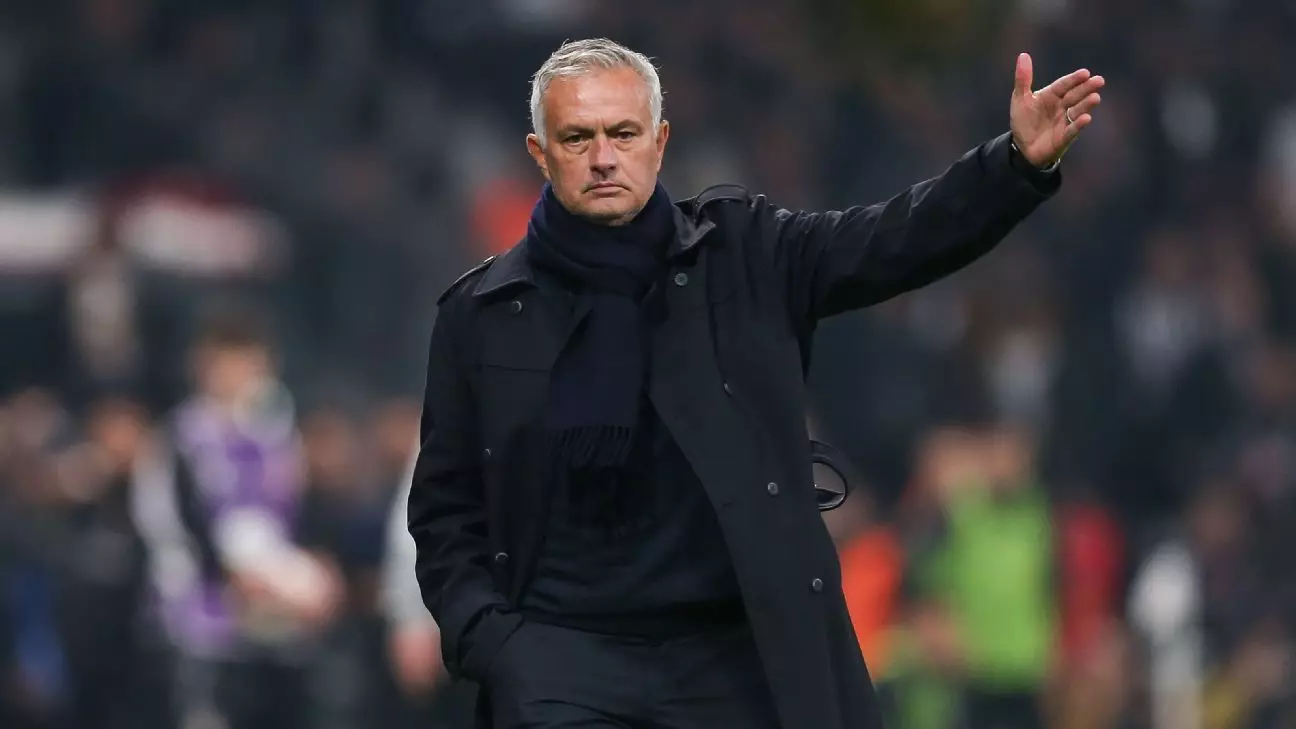The rivalry between managers José Mourinho and Pep Guardiola has long been one of the fiercest in football history, igniting debates and controversies that resonate beyond the pitch. Their long-standing feud, rooted in competitive passion during their respective tenures with Real Madrid and Barcelona, has reached yet another level with recent comments made by both figures. This latest episode stems from Guardiola’s reaction to taunts from Liverpool fans about his six Premier League titles and Mourinho’s insistence on fairness in football—a discourse that unveils deeper issues regarding financial regulations in the sport.
Mourinho, now at the helm of Fenerbahçe, took exception to Guardiola’s remarks regarding his purported desire to see Manchester City relegated. In a passionate defense, Mourinho clarified that his position is not about targeting City but rather advocating for „justice in football.“ His frustrations are rooted in the contrasting treatment of smaller clubs versus wealthier entities; he highlighted instances where clubs with less financial muscle face penalties for minor overspending while larger clubs manage to navigate around similar regulations. This sentiment reflects a broader discontent among many in the football community about the perceived inequality in how Financial Fair Play (FFP) rules are enforced.
Mourinho’s background as a manager of notable clubs such as Chelsea and Manchester United informs his perspective. His experiences with Roma, where he faced stringent budgetary constraints, have likely intensified his viewpoint on financial fairness. The essence of his argument can be seen as a call for reevaluation of how football governance operates, questioning whether the FFP rules serve their intended purpose of leveling the playing field or merely protect the interests of financial juggernauts.
While Mourinho articulated his desire for justice, Guardiola remained focused on his imminent Champions League clash against Juventus, deflecting direct inquiries about Mourinho’s statements. Guardiola’s tenure at Manchester City has been marked by success, yet it carries scrutiny, especially regarding allegations of financial misconduct—a topic of great sensitivity, considering the ongoing questions surrounding the club’s compliance with the Premier League’s financial regulations.
His declaration that he does not intend to manage another club post-City adds a layer of stability to his current role. It suggests a commitment that contrasts with Mourinho’s more dynamic career path, marked by the change of clubs and countries. Guardiola’s inclination toward potentially managing a national team reflects a different approach to the game, preferring to work in a less frenetic environment. This divergence in managerial philosophy between the two icons further deepens their rivalry, not just as competitors but as contrasting figures within the world of football management.
Despite the apparent tensions reflected in their comments, Mourinho sought to downplay the animosity between himself and Guardiola. By reminding audiences of their historical connection, where he served as an assistant during Guardiola’s player years, Mourinho revealed a layer of mutual respect that often gets overshadowed by their competitive exchanges. His assertion that neither holds any personal grudges towards the other illustrates the complex nature of rivalries, which can coexist alongside respect and camaraderie.
This mutual understanding offers a refreshing perspective on how rivalries in sport should be framed. The focus should not solely be on conflict but also on competition as a catalyst for improvement and passion. While their exchanges can stir controversy, they also serve as a focal point for broader conversations about the game’s integrity, regulation, and fairness.
As the dramas of the season unfold, the Mourinho-Guardiola rivalry continues to act as a barometer for various issues within football, particularly regarding financial practices and the governance of clubs. Their respective comments are more than just a verbal spar—they are reflections of larger systemic issues within the sport. While Mourinho’s call for justice amplifies the need for accountability, Guardiola’s steadfast approach to his role signifies a dedication that could shape the future landscape of football management.
Ultimately, both managers, through their rivalry and philosophical standpoints, are instrumental in fostering a discussion that transcends personal disputes. The themes of fairness, integrity, and respect in football remain vital to ensuring that the beautiful game maintains its essence, encourages competition, and serves all clubs, big and small.


Napsat komentář